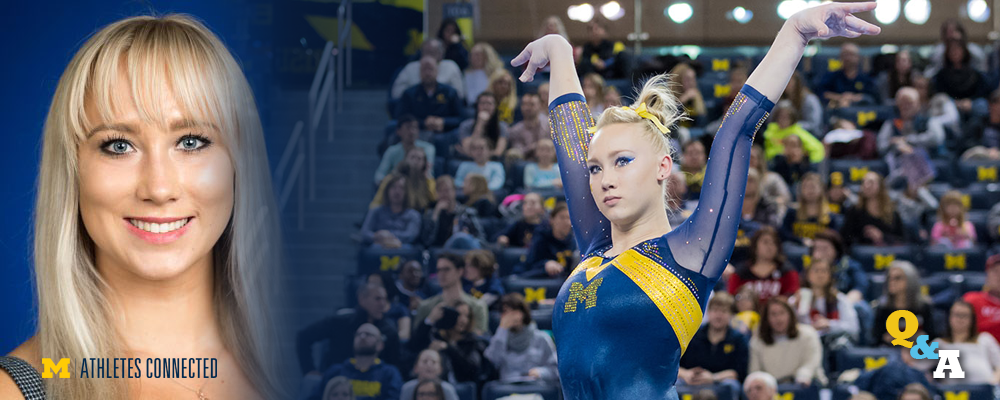
The Athletes Connected program recognizes the many different entities that factor into student-athlete mental health. As part of our Q&A series, Athletes Connected shares how coaches, administrators, athletic trainers and other athletic staff approach their roles in the lives of student-athlete health.
To continue the series, Athletes Connected caught up with women’s gymnastics student assistant coach Polina Shchennikova, who medically retired from competition in fall 2018. Shchennikova graduated from U-M this spring with a bachelor’s degree in sports management.
See our previous Q&A posts:
Q: Tell us about yourself. Where are you from? What did you study?
Hi, my name is Polina Shchennikova. I’m from Denver, Colorado. I’m a gymnast. I studied sport management and graduating earlier this month. I’m still unsure what I’m doing after, but I’m hoping to stay in the gymnastics world.
Q: Outside of school & sport, what are your other passions?
A: I would say focusing on mental health and helping people in whatever ways I can. That’s how I came up with the idea for FLY (First Love Yourself), and it’s directed toward athletes who are currently facing or have overcome challenges, whether it be injury, managing school, or body image.
Q: Why did you create FLY? Was it something that worked well for you or because you felt something was missing while dealing with your own mental health issues?
Definitely because of things that were missing. Growing up I had a lot of personal struggles, and they ended up taking a downward spiral, and I really don’t want kids to feel the way I felt when I was doing athletics. I want them to all have a better experience. I was so invested in gymnastics – to the point that it ended my career.
I really don’t want kids to feel the way I felt when I was doing athletics. I want them to all have a better experience
That was one of the most painful things I think I’ve felt. Gymnastics was my whole life. I did online school so I could have more time to do gymnastics. My coaches were my parents, my family going back many generations were gymnasts. I was willing to give up just about everything to do it, and that wasn’t the healthiest way for me to think about things.
Q: Was there anything else specific missing in terms of mental health as an athletes?
I didn’t know how to take care of my body, either. I was raised in a “this is how you should look” mindset. If you don’t look a certain way, you won’t be able to perform a certain way; the lighter you are, the better you’ll perform.
That impacted my mental health as an athlete, and that is still stuff I struggle with today. There’s so much with body image and body shaming. My junior year, we went to one of our team retreats and it was very emotional because we had a team presentation about body image. We all cried, we all opened up and shared our stories and it was amazing and inspiring to see what everybody else was keeping inside and how much it impacted them. But no one knew until we sat down and had that conversation.
After that, we became a lot closer with ourselves, our teammates, and even our coaches. I wish I would have had an experience like that earlier, while growing up. If we can do this with this team, imagine what we can do with a bigger group of people and a bigger group of athletes if we can get them to open up and share their stories, whether it’s body image or any other mental health issue. That is where it really sparked the idea that FLY could really be something.
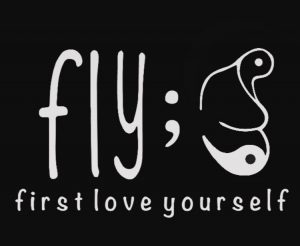 Q: What is your vision?
Q: What is your vision?
When it comes to mental health, I know how hard it can be to speak up about your struggles, and I know how hard it is to come face to face with those issues, so for me, at first it started as wanting this symbol we can all wear together to unite us.
In this case, the symbol is a butterfly. The body of the butterfly is a semicolon, which represents suicide awareness. The wings represent the feeling of anxiety, because a lot of people say it’s like getting butterflies in your stomach.
In the wings, I also included a yin and yang symbol to represent depression. It shows that there is good in the bad and bad in the good. The color scheme is black and white; the absence of colors symbolizes a loss from a struggle that–for example–ended your sport.
Q: Do you have programming yet?
No, mostly because I want it to be perfect. That’s why it’s taken so long even to get the symbol out there. I started this two years ago, and I still haven’t had a moment of “this is perfect” yet. But I’m hoping that by sharing this symbol, it will start to take off from there.
I have a bunch of ideas swirling in my head, and I want it so badly to be perfect, but I need to take a leap of faith and then keep building on it. It’s hard for me to open up about these things and it’s a work in progress, but I just want to help people get through their struggles.
In the future, I envision sharing ideas for things like trying to find yourself outside of your sport because, as athletes, we’re so ingrained in it. Who am I? Well I’m Polina, I’m a gymnast, and these are my accomplishments in gymnastics. But who am I outside of gymnastics? It’s learning to find different ways to be a person, and not an athlete. For example, it might be, go out and volunteer, walk your dog, or get coffee with friends and talk about anything besides sports.
I have also thought about starting my own gym and combining it with mental health–possibly a psychology clinic–so my athletes can work with trusted clinicians. Having access to Athletic Counseling has been great, especially to my team. I feel like many people miss that opportunity growing up.
Q: How can people get involved or in touch with FLY?
I have a website in progress, which will start as a blog that people can write into.
I’ll continue to work on it post-graduation either way, so hopefully I’ll keep finding more people who want to help and be involved. In the meantime, I think the most important thing is for athletes to speak up about their struggles.
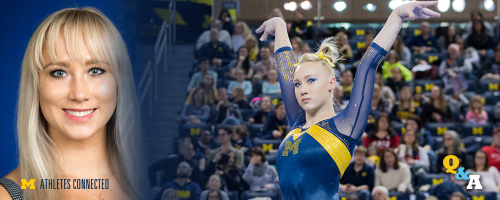
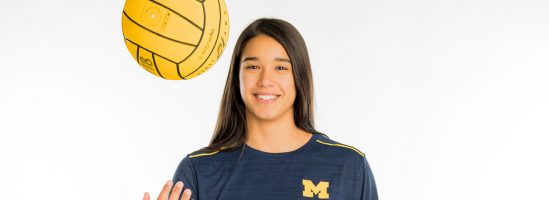
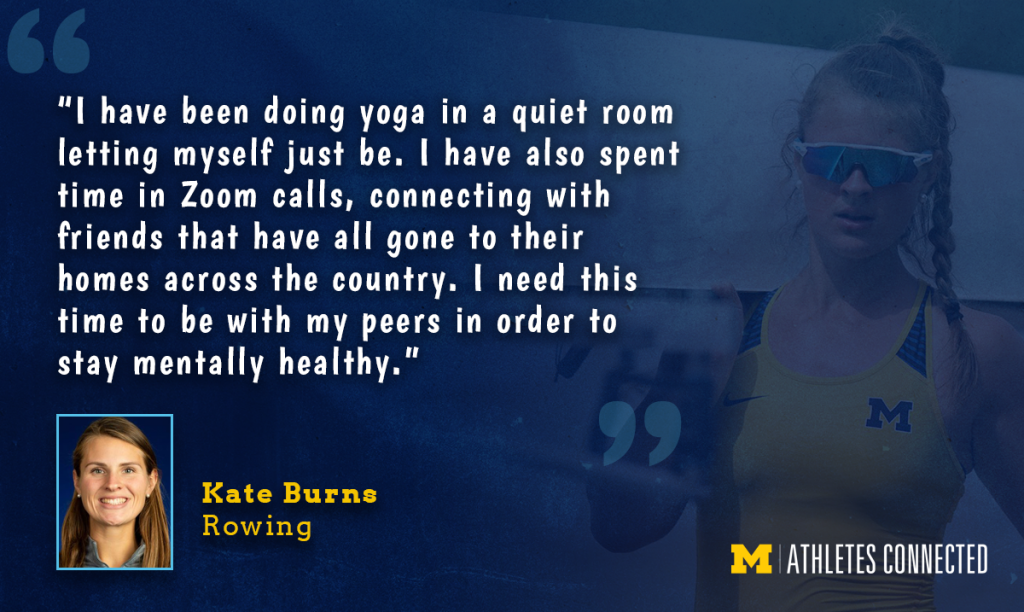

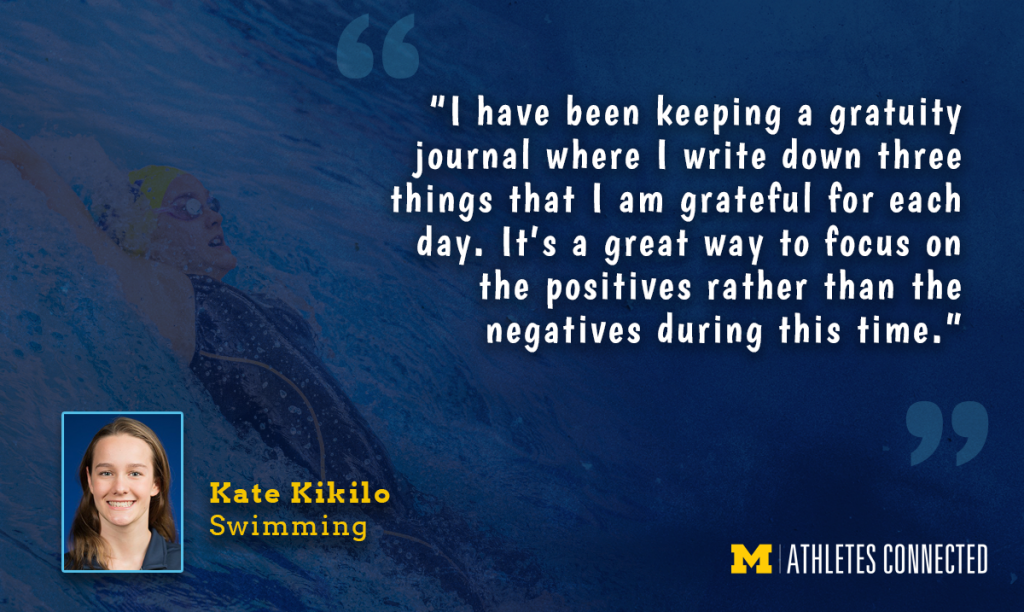

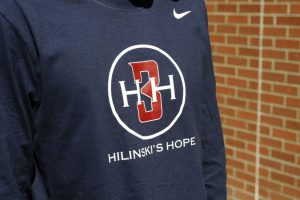

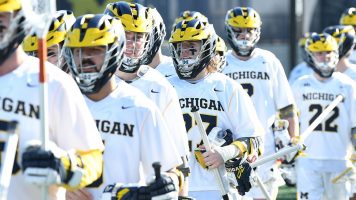
 Athletes Connected continues its resource stories for student-athlete coping during the COVID-19 pandemic. This story is about learning strategies.
Athletes Connected continues its resource stories for student-athlete coping during the COVID-19 pandemic. This story is about learning strategies. Instead, set a time when you can clear a kitchen table, turn off the TV, and have your new study spot feel similar to the desk at the AC. The further away from an ideal study environment you get, the longer it will take you to learn the same information. The longer you are trying to learn and study, the more difficult it becomes to stay motivated.
Instead, set a time when you can clear a kitchen table, turn off the TV, and have your new study spot feel similar to the desk at the AC. The further away from an ideal study environment you get, the longer it will take you to learn the same information. The longer you are trying to learn and study, the more difficult it becomes to stay motivated. Your brain stores information at a certain rate. The ability to remember that information accurately is greatly increased each additional time you attempt to learn it. The more you repeat the information you are studying, the better you will be able to store and remember it for the exam.
Your brain stores information at a certain rate. The ability to remember that information accurately is greatly increased each additional time you attempt to learn it. The more you repeat the information you are studying, the better you will be able to store and remember it for the exam.  About the Author
About the Author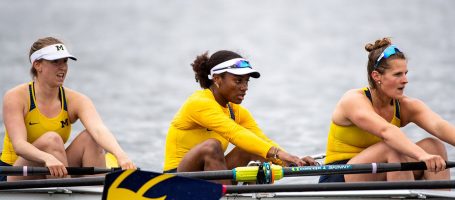
 Athletes Connected is compiling a set of resources for student-athletes for coping during the COVID-19 pandemic. This story is about adjusting to isolation with some helpful positive self-talk when you’re feeling anxious or overwhelmed.
Athletes Connected is compiling a set of resources for student-athletes for coping during the COVID-19 pandemic. This story is about adjusting to isolation with some helpful positive self-talk when you’re feeling anxious or overwhelmed. 